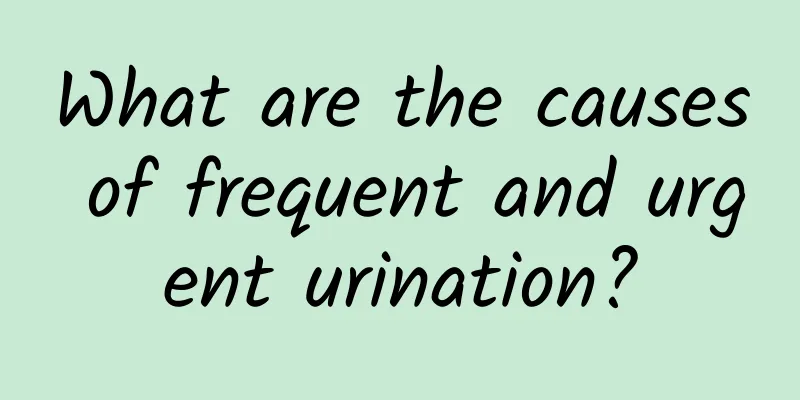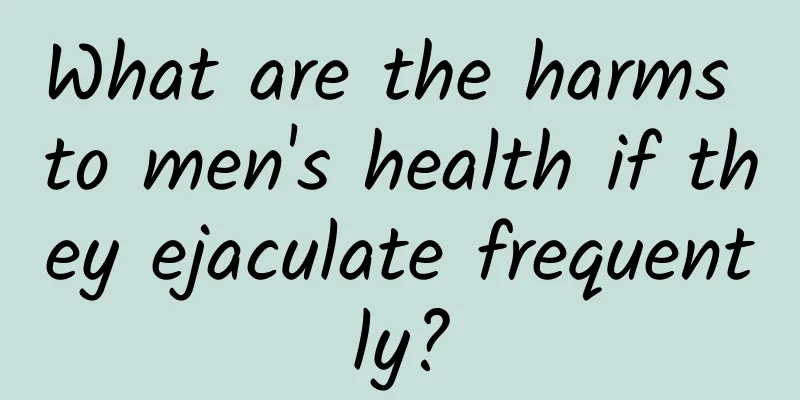Died a few days later from gastric bleeding

|
The occurrence of gastric disease is mainly related to poor diet. Once stomach pain, belching and other discomfort symptoms occur, timely treatment and adjustment of eating habits can prevent the stomach disease from getting worse. However, if gastric ulcer or gastric bleeding occurs, drug treatment should be carried out in time. Generally, if the amount of gastric bleeding is not large, it will not cause death, but if the amount of bleeding is 1000 ml or 2000 ml, it will cause death. Gastric bleeding is commonly known as upper gastrointestinal bleeding. More than 40% of cases are caused by gastric and duodenal ulcers. People with a history of gastrointestinal diseases such as overwork, irregular daily diet, and abnormal emotional tension are prone to the disease; the second is gastric bleeding caused by acute hemorrhagic gastritis. Most of the gastric bleeding caused by these two reasons can be effectively treated after formal treatment. Another is gastric bleeding caused by liver cirrhosis. Patients with liver cirrhosis generally develop esophageal varices. If they eat rough food and are overly emotional, the esophageal venous vessels will burst and heavy bleeding will occur. The mortality rate of gastric bleeding is as high as 10%. Symptoms of gastric bleeding: Fever. The patient has a fever, which usually does not exceed 38.5℃ and can last for 3-5 days. Symptoms of gastric bleeding 2: Vomiting blood and black stool. The symptoms of gastric bleeding are mainly vomiting blood and blood in the stool. After bleeding, the patient may vomit blood due to nausea and vomiting caused by blood stimulation. There is a sense of defecation before the blood in the stool. After defecation, the eyes turn black, the heart is flustered, and even fainting, pale face, thirst, rapid and weak pulse, and decreased blood pressure. All patients have tarry black feces. Generally speaking, when the amount of bleeding is large, there is black stool and vomiting blood; when the amount of bleeding is small, there is often only black stool. If the bleeding site is in the duodenum, vomiting blood is less common. Symptoms of gastric bleeding: Other systemic symptoms. If the bleeding speed is slow and the amount of blood is small, there are generally no obvious systemic symptoms. Anemia will only occur after a long period of bleeding. If the bleeding is large and fast, symptoms such as dizziness, blurred vision, fatigue, abdominal pain and diarrhea, tachycardia, pale complexion, and cold sweats will occur. |
<<: What to do if there are small red spots on the penis
>>: The harm of men's delay spray
Recommend
Male perineum lumps
Male perineal pain generally needs to be consider...
Sex life becomes soft
Men feel fatigued in the middle of sexual interco...
Why can't I urinate after circumcision surgery?
For Chinese men, it is common to have a foreskin ...
How to treat male pattern hair loss and what causes it
Is hair loss a common feature of every modern per...
Does hematospermia require abstinence or blood discharge?
Patients with ejaculation bleeding are mainly cau...
The production process and preparation materials of boiled squid
Chili Oil"text-align: left;">Speaking...
Why do boys like to stick out their tongues when kissing? What are the techniques for kissing?
When kissing a girl, besides boys being particula...
What causes obesity in men?
In today's society, weight loss is not only f...
What to do if a man has greasy hair
Having a fresh image will always increase people&...
How long can you live after prostate removal?
The problem of prostate cancer is still relativel...
Is there any harm if a man keeps his penis erect for too long?
Male friends must pay great attention to the occu...
Penis Trinity Training Method
In modern life, many men suffer from long-term ex...
What to do if your foreskin becomes inflamed
For children, if they have an overlong foreskin, ...
What to do with gastrointestinal colds? Treatments for gastrointestinal colds
Gastrointestinal cold is a type of cold, which re...
Can black wolfberry prevent cancer? The unknown effects of black wolfberry!
Black wolfberry is a traditional Chinese medicine...









